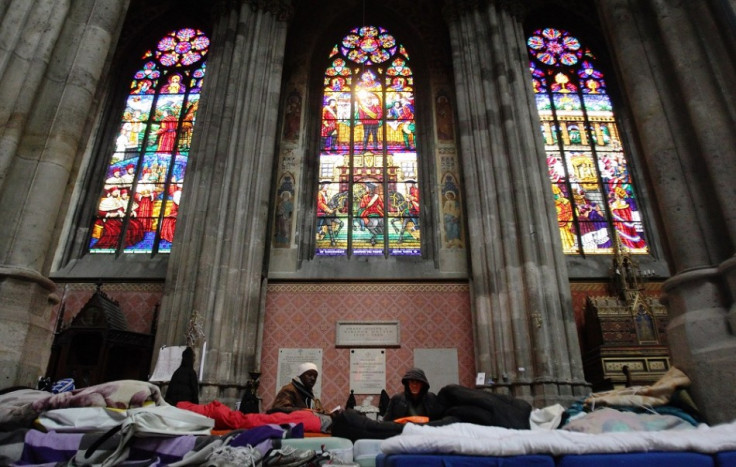Cameroon: French Priest Kidnapped by Boko Haram
French priest who helped Christians evade Islamist group Boko Haram kidnapped in northern Cameroon

A French priest who founded a shelter for Christians fleeing from the Nigerian Islamist militant group Boko Haram has himself been kidnapped in northern Cameroon, the French foreign ministry has confirmed.
Georges Vandenbeusch was abducted near the town of Koza, approximately 30km from the border with Nigeria.
"Research is underway to verify the circumstances of his abduction and the identity of the kidnappers. We are working with Cameroonian authorities to secure his release," a statement said.
Boko Haram is thought to be responsible for the kidnapping, according to LCI, a French cable news channel.
The ministry said that it had designated the area as a dangerous zone after seven members of a French family were kidnapped by Islamist militants in February. They were held hostage for two months.
The area, which is close to the Nigerian border, is known to have an elevated risk for terrorism and kidnappings.
The French ministry said, "Father Georges chose to remain in his parish to carry out his work."
Alain Marsaud, a French lawmaker, told France Info radio that Vandenbeusch, 42, had been meeting some nuns and other people when armed men took him away on foot.
Alasdair Reid, Sub-Saharan Africa Analyst at AKE Group, said: "The proximity of the area [northern Cameroon] to the problematic parts of Nigeria provides additional security challenges. It is an extremely complicated situation, demonstrated by the extension of the Nigerian state of emergency in the three northeastern states of Adamawa, Borno and Yobe for another six months on 6<sup>th November."
"Another example of the deteriorating security situation in the region is the Joint Task Force (JTF) raids on Boko Haram camps in Bama over the last four days, which is within 20km of the border."
The JTF offensive against Islamist militants in Northern Nigeria has pushed approximately 40,000 refugees across the border into Niger, according to the UN OCHA (Office for Coordination of Humanitarian Affairs) agency. "These figures give an indication of the level of destabilisation in the area," states Reid.
While additional security and troops installed along the Nigerian-Cameroonian border after the kidnap of a French family in February, Reid affirms that the border is far from secure: "Despite this extra security, it [the border] is a long and rural stretch which is unguarded in many parts and, therefore, pretty easy to cross."

In the case of the kidnapped French family, the hostage takers received a ransom payment of approximately £3.15m by French and Cameroonian negotiators to secure the family's release.
Both French President Francois Hollande and the Cameroonian government denied that a ransom was paid, while Nigeria has refused to comment on the issue.
The United States has now formally designated Boko Haram and Ansaru, the other Islamist militant group operating in the country, foreign terrorist organisations.
This places an outright ban on any business and financial transactions with these groups.
The US state department described the move as "an important" step to "root out violent extremism" in Nigeria.
In similar fashion to the Somali pirate kidnappings off of the coast of East Africa from 2009 onwards, kidnappings have become a lucrative business in western and northern Africa.
Enormous ransom payments from Western governments to jihadists are seemingly fuelling such kidnaps and allowing terrorists to obtain the financial returns they desire.
Since France deployed troops to Mali in January, Islamic fundamentalists have retaliated by targeting foreign nationals in kidnap attacks on both sides of the Sahara.
Two reporters were kidnapped and executed in Mali earlier this month, while two American sailors were kidnapped off of the coast of Nigeria two days ago.
© Copyright IBTimes 2024. All rights reserved.























